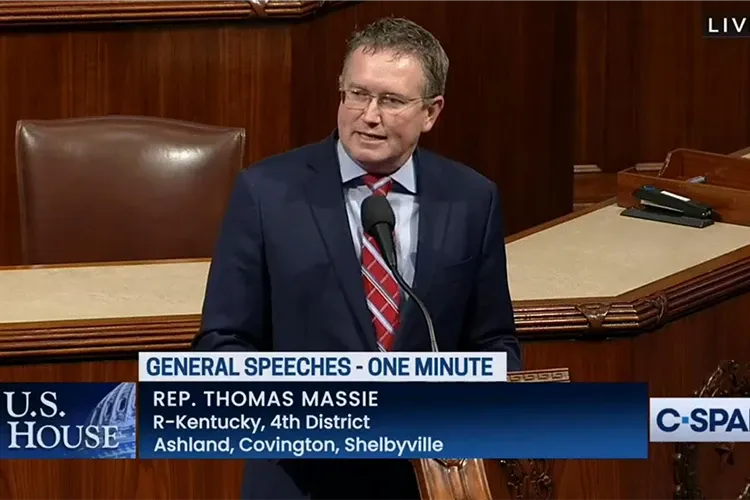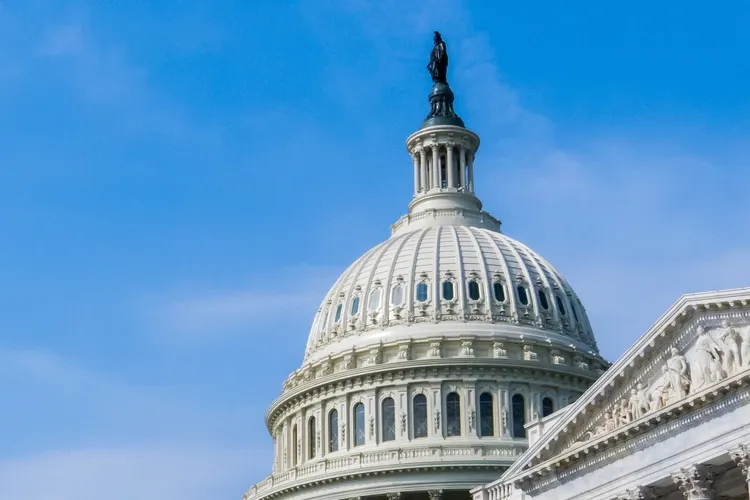Let’s be honest.
We know few members of Congress actually read bills before they vote on them.
But that's not why Pelosi and company work to ram as much as possible through the House as quickly as possible.
Leadership isn't really worried that Congress will read the bills. They're concerned about public outcry if legislation is available for review before it's passed.
The more time allowed, the more opportunity organizations have to mobilize. Many a bad bill has met its fate because people organized and forced Congress to kill it.
That's why Congressman Thomas Massie's effort to strengthen the 72-hour period between when a bill is introduced and when it's voted on is valuable.
House rules currently require this period, but allow it to be suspended by simple majority. Now 72 hours doesn't leave much time, but Pelosi regularly calls on the Democrat caucus to do away with it all together, allowing her to ram through legislation with almost no opportunity for public input.
Rep. Massie (R-KY) is proposing that it take a two-thirds majority vote to suspend the 72-hour reading rule, preventing a simple majority party from perpetually fast-tracking legislation.
Massie is no fool. He knows that requiring more time is unlikely to result in more of his colleagues reading bills. The rule change would provide opportunity for the bill to be exposed to public scrutiny.
Making it harder to rush bills through the House will help keep Republicans honest.
Precious few Americans believe that Republican Minority Leader and likely next House Speaker Kevin McCarthy (R-CA) is a stalwart for American freedom. He is much more in the mold of Mitch McConnell or John Boehner.
Making it harder to rush bills through the House will help keep Republicans honest. Frankly, America needs this more than ever.
Massie’s fight for a strict 72-hour reading rule also highlights an important feature of the government established by the U.S. Constitution.
Unlike parliamentary systems around the world which are designed to allow legislation to advance rapidly with little input from the minority party (or the people!), the U.S. system was created to temper the whims of the majority.
Checks and balances are spread throughout the federal Constitution between the various branches of the U.S. government as well in the relationship between the federal government and the many state governments.
Just within the legislative branch there are checks and balances between the U.S. House of Representatives and the U.S. Senate. The rules of each body are also generally designed to slow down the legislative process.
Much harm has been done over the last decade to the various checks and balances as we have witnessed the growth of the administrative state and rampant judicial activism.
“It is much more important to kill bad bills than to pass good ones.” – President Calvin Coolidge
In the Senate we have also seen the removal of the filibuster for executive and judicial branch appointments. Neither party has nuked the filibuster on purely legislative matters yet, but Democrats and even some misguided Republicans have pushed for its removal in recent years.
What does this all have to do with Massie’s proposed rule change?
For conservatives, anything that can slow down the legislative process is a good thing. As President Calvin Coolidge once said, “It is much more important to kill bad bills than to pass good ones.”
Requiring a two-thirds vote to suspend the 72-hour reading rule would slow down the legislative process and allow conservatives time to organize opposition. Most of the bills being passed in Congress are growing the size and scope of government, so anything that can be done to derail these efforts is a benefit to the cause of freedom.
It is always a temptation for the party in power to grow and centralize their authority. It’s as if they forget that they are likely to lose power in just two short years and the powers that they have abused will then be used against them.
The new Republican majorities in the U.S. House of Representatives need to recognize the value of reestablishing the 72-hour reading rule. It’s a modest change in radical times that would go far in exposing the swampiness of the legislative process and curtail the desires of politicians in both parties to legislate by emergency.




